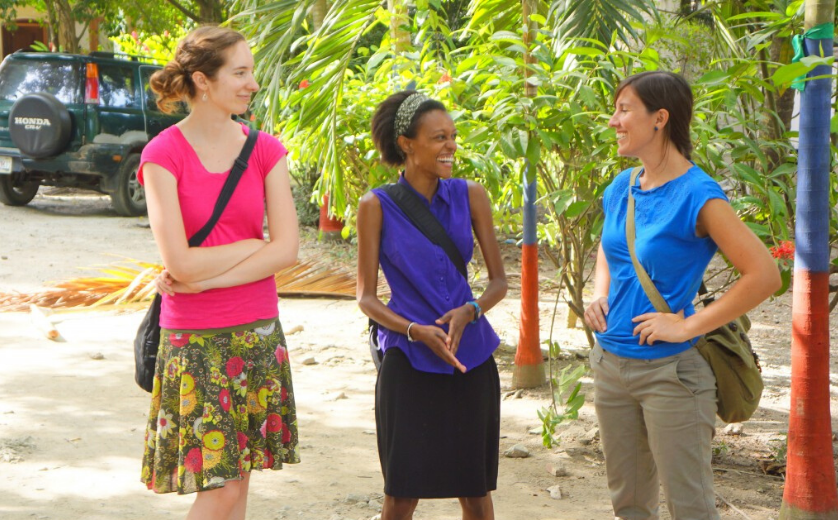Trish Kohl and Lora Iannotti, associate professors at the Brown School at Washington University in St. Louis, have received a five-year $3.2 million grant from the Eunice Kennedy Shriver National Institute of Child Health and Human Development of the National Institutes of Health to study stunted growth and development in children in Haiti.
“Recent estimates show 250 million children less than five years of age are not reaching their developmental potential, and 151 million have stunted growth,” Iannotti said. “Determinants of stunted growth include interactions between biological, behavioral, social and environmental conditions, yet the evidence base is minimal for integrated approaches to tackle the interwoven factors.”
“The effects on important psychosocial indicators of child development, however, were not assessed,” she said “Building on these findings and those of our pilot study of a group-based intervention, we will use this grant in a larger study to both replicate the egg intervention and test it with a parenting intervention to target other biological, social and environmental factors.”Iannotti and her team recently found significant impacts from an egg intervention on young child growth and biomarkers of nutrition and brain development.
The team will conduct a three-pronged, longitudinal, randomized control trial to compare the following groups for effectiveness in reducing young child stunted growth and enhancing overall development: “Cap-Haïtien, Haiti, offers an ideal site for this trial,” Kohl said. “Our team has nine years of experience in the region with established partnerships and a strong research infrastructure. Similar to urban communities in the U.S. and around the world, poverty is a crucial determinant of impaired growth and development in Cap-Haïtien.”
- standard well-baby care
- nutrition intervention (one egg per day for 6 months)
- multicomponent Grandi Byen — Haitian Creole for “grow well” — intervention (responsive parenting, nutrition, hygiene plus one egg per day for 6 months).
Infants will be enrolled between 6 and 8 months of age and followed longitudinally for one year.
“We hope to determine if an egg-based intervention will impact social-emotional development,” Kohl said. “We also hope to find out if children of mothers receiving Grandi Byen will have higher scores on child cognition, language, motor and socio-emotional development compared to standard care.”
